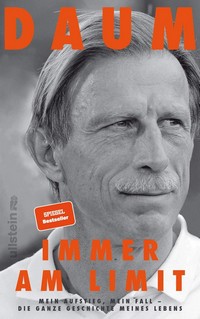In the annals of the Bundesliga, Christoph Daum is phenomenal in reinventing himself every now and again. He encapsulates the typical German can-do mentality. In his book, Immer am Limit, Daum regales the reader with anecdotes of his life, passion and work. The book is a journey through memory lane in the Bundesliga and all the countries that he worked as a coach. Daum was a trailblazer and destined for greater heights until a mishap occurred, which became a defining moment.
Daum, born 1953 in Zwickau, lost his father early, but grew up with a stepdad, who taught him how to be a handy person.
He played for Eintracht Duisburg as a defender before Bayer Leverkusen took an interest in him. Back then, Leverkusen had just earned a promotion to division two in the Bundesliga. He went on trials and felt his professional career will start with Leverkusen. Unfortunately, Leverkusen decided for another player. They wanted Daum for the B team. But the B team played in a lower league compared to Eintracht Duisburg. And he had already signed off with Duisburg.
Who discovered Christoph Daum as a coach?
Daum was distraught by Leverkusen’s decision. He turned to Gero Bisanz, who was his soccer lecturer at the German sport institute in Cologne and coach of Cologne’s amateur team. Bisanz saw Daum’s potential.
Daum played for Cologne’s amateur team. Later, Bisanz recommended him as junior coach. It was in this position that Daum developed his passion for the game. He enjoyed his ability to develop the malleable minds of the kids he coached.
Gero Bisanz discovered Daum’s talent as coach. And he rose through the ranks to become the coach of the professional team in 1986.
Daum, the master tactician
A substantial part of Daum’s coaching career was his ability to manage egos and sell his vision to the players. He started as a neophyte in Cologne, in a team filled with top stars like Toni Schumacher or Morten Olsen. He knew if he’s able to be on the same page with the players, it would enhance his game plan.
In Cologne, Daum convinced the “Danish Beckenbauer”, Morten Olsen, who was the oldest in the team at 37 years old, to move position from Libero to midfield. It took lots of courage and self belief from Daum to sell the idea to Olsen. Because it meant extra duty for Olsen. Olsen agreed initially for one or two matches at best. Interestingly, the game plan worked, and Cologne started to win matches again.
The coach roller coaster of moving from club to club blighted his career or, on a positive note, amplified and sharpened his coaching skills for the future.
In Stuttgart, he was no longer a perennial contender in winning the Bundesliga. In fact, he won it with VfB Stuttgart in 1992. Stuttgart had Guido Buchwald, Maurizio Gaudino or Matthias Sammer. Daum, in the beginning, increased the physical fitness of the team without the ball. An exercise that Sammer did not like!
The resilience of Daum
There has been a lot written in the press about Daum. He is a favorite of journalists because you can always get quotes from him to ignite the rivalry against Hoeness and Bayern Munich. He confessed he learned the verbal “attacks” in the trade from the likes of Udo Lattek and Mohammed Ali. Hoeness did not seat idle and tolerated his rhetoric. Rather, he topped the ante by replying with his own vitriol. Another person who made Hoeness engage in vitriolic debate was Willi Lemke, the formal manager of Werder Bremen.
Germans wanted Daum to be the head coach of Germany’s national team. Even the Bayern contingent agreed in principle for Daum to take over. But there was a snag. He still had a year in his contract with Leverkusen. The German FA agreed at the suggestion of Daum for Rudi Voeller to be interim coach until May 31st, 2001.
Unfortunately, Daum failed a drug test some months later, and his world came crashing down. He faced a barrage of attacks and rumor. He became persona non grata in the Bundesliga.
Afterwards, Daum rose from grass to grace in his coaching career. But the road to coach the German national team was closed forever.
I bet it was a searing experience for Daum to write the book, but it puts an end to the rumors and what ifs about his life. The anecdotes in the book are because of Daum’s self-confessed chronic taking of notes. He says, taking notes gives him security and an opportunity for reflection. Daum is very cerebral and all his maxims about soccer worked because he is a disciple of self improvement.



